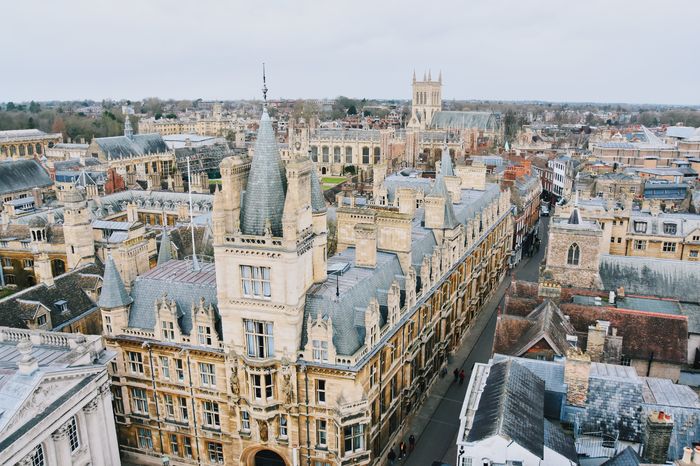Congestion charge plans stuck in gridlock
Changes to controversial plans for a congestion charge and improved bus services have been announced, but reports suggest support is dwindling

The Greater Cambridge Partnership’s (GCP) plans for a £5 congestion charge and improved bus services have been watered down after a public consultation revealed significant opposition to the plans.
The GCP planned to create a Sustainable Travel Zone covering Greater Cambridge, where drivers would pay a daily charge of £5 for cars and £10 for vans.
The Secretary of State for Culture, Media and Sport, Lucy Frazer, has described the new revised proposals as “unworkable”.
For the plans to go ahead, Cambridgeshire County Council must agree to implement them, and the Liberal Democrats, who run South Cambridgeshire District Council and lead a coalition on the county council, are yet to come out in support of the plans. Bridget Smith, the Liberal Democrat leader of South Cambridgeshire District Council, told the BBC that they had “further concerns” that will be “debated in full.”
The GCP is an organisation made up of three councils, as well as representatives from businesses and academia. Andy Neely, Senior Pro-Vice-Chancellor for Enterprise and Business Relations at the University of Cambridge, holds one of the five seats on the executive board.
The revised proposals reduce the period when the charge applies to only the peak hours of 07:00-10:00 and 15:00-18:00 and allow for 50 free travel days.
Following concerns about the plan’s effects on businesses and people living in poverty, a 50% discount has also been included for small and medium-sized businesses and for people with low incomes. The revised proposals include an exemption for people travelling into Cambridge to go to hospital.
The GCP says the charge is necessary to reduce congestion in the city and improve public transport, making it cheaper and greener.
In addition, the GCP points out that the money raised will be spent on cheaper, greener, and more frequent bus services, with flat fares of £1 in Cambridge and £2 for the wider area beginning in 2024.
The changes came after a public consultation with 24,000 responses found that 58% of people were opposed to charging motorists to pay for public transport improvements, although 70% were in favour of an expanded transport network. Those aged 55-64 were most likely to be against the plan, while a majority of under-25s supported it.
Rachel Stoppard, Chief Executive of the GCP, said: “We have listened to people’s concerns and feedback during the consultation and taken action by revising our proposals.”
Addressing the changes, Stoppard continued: “Although the updated measures are not the preferred option that we presented originally, we believe that the revised proposal is fair to everybody,” citing small businesses and those on low incomes.
The Cambridgeshire Residents group, which opposes the plan, said in a statement released to their Facebook group: “These proposals are tinkering around the edges of the original set of draconian proposals and do nothing but shift the perceived congestion from one part of the day to the another.”
Mike Davey, leader of Cambridge City Council, told Varsity that the revised proposals “differ significantly from the scheme that was put out for consultation, and we know that residents and others in the broader Cambridge community have strong views both ways on them.”
Davey has confirmed that the Cambridge City Council’s Labour Group will meet next week to discuss the new proposals, and will issue a statement shortly afterwards.
The proposals will be reviewed at a Joint Assembly on the 7th of September before a recommendation on how to proceed can be made to the Executive Board of the GCP.
 Features / Should I stay or should I go? Cambridge students and alumni reflect on how their memories stay with them15 December 2025
Features / Should I stay or should I go? Cambridge students and alumni reflect on how their memories stay with them15 December 2025 News / Cambridge study finds students learn better with notes than AI13 December 2025
News / Cambridge study finds students learn better with notes than AI13 December 2025 Comment / The magic of an eight-week term15 December 2025
Comment / The magic of an eight-week term15 December 2025 News / News In Brief: Michaelmas marriages, monogamous mammals, and messaging manipulation15 December 2025
News / News In Brief: Michaelmas marriages, monogamous mammals, and messaging manipulation15 December 2025 News / Uni Scout and Guide Club affirms trans inclusion 12 December 2025
News / Uni Scout and Guide Club affirms trans inclusion 12 December 2025










